Monday 27th February 1978
FA Cup Fifth Round Replay
Blyth Spartans v Wrexham
St James’ Park, Newcastle.
 A week before the 1-1 draw at Wrexham the club met with council officials and Police to assess Croft Park’s ability to host a possible replay. Manager Brian Slane was keen to stage any replay at Croft Park but with a possibly 4th Round Stoke City replay already assigned to St James’ Park the outcome seemed inevitable. Officials again decided that due to Croft Park’s limitations this replay would also have to be held there.
A week before the 1-1 draw at Wrexham the club met with council officials and Police to assess Croft Park’s ability to host a possible replay. Manager Brian Slane was keen to stage any replay at Croft Park but with a possibly 4th Round Stoke City replay already assigned to St James’ Park the outcome seemed inevitable. Officials again decided that due to Croft Park’s limitations this replay would also have to be held there.
The only game the club had wanted at St James’ was a 5th Round tie against Newcastle United but Wrexham had put pay to that!.
The prospect of hosting Arsenal in the Quarter Finals added to the high demand for replay tickets, putting even more pressure on both Blyth and Newcastle officials. United Secretary Russell Cushing wasn’t sure that the game would even go ahead: “There are 12 inches of snow on the pitch and we are not very hopeful. The sale of tickets has still to be arranged”.
As expected the Wednesday night replay (22nd February) was postponed, local ref Alan Saunders was called into make the official decision. The postponement allowed officials to organise what had become the biggest game staged in the North East for years.
The tie was rescheduled for Monday 27th, a night that would become enshrined in North East football folklore.
The delay raised concerns that the FA would invoke Steve Carney’s red card and therefore rule him out. If that happened, Brian Slane wanted the club to look into the possibility of getting a game staged that would act as his suspension.
Blyth went without a game between the ties when the scheduled Senior Cup replay at Whitley Bay was called off due to the heavy snowfall. Fortunately the FA didn’t act and it also meant further injuries were avoided. Eddie Alder (knee), Ronnie Scott (heel) and Rob Carney (leg) had picked up knocks at the Racecourse Ground and were giving cause for concern. The squad trained on the Sunday before the tie with the national press invited to an open training session at Croft Park.
Brian Slan e had approached Newcastle United asking if the players could have a look around the ground ahead of the game. United officials went one better inviting them to be guests of honour for the home game against Ipswich Town on the Saturday.
e had approached Newcastle United asking if the players could have a look around the ground ahead of the game. United officials went one better inviting them to be guests of honour for the home game against Ipswich Town on the Saturday.
Players and officials were given a tour of the ground and the players received a standing ovation when presented to the crowd. Ironically it was United’s first home game since Wrexham snatched a 2-2 draw in the 4th Round a month earlier. Wrexham did play over the weekend, they got FA approval to bring their away game at Lincoln City forward 24 hours to give then time to recover. The Friday night 1-0 win also served as John Lyons suspension so he was free to play in the replay.
 The replay wasn’t all-ticket but the 11,000 seats inside
The replay wasn’t all-ticket but the 11,000 seats inside
St James’ Park had sold out and the crowd exceeded expectations. Officially given as 42,187, however people took to climbing over walls to get in as up to 10,000 were reported to have been locked out after the gates were closed.
The North East had truly taken the Spartans to their hearts and after the game Wrexham manager Afron Griffiths commented he hadn’t seen a game played in such fervent atmosphere since the first game at Old Trafford after the Munich Air Disaster. He stated that he had felt sorry for their 500 fans tucked away in a corner of the ground rammed with 40,000 partisan Geordies!.
The team got an idea of what was happening that night when their bus struggled to make it to the ground due to the sheer numbers of people trying to get into the city centre.
It was a surreal experience for the squad as Dave Clarke recalled:
“We were stuck in traffic and a police officer on a motorbike pulled up beside the front of the bus and Jackie Marks wound the window down and asked him if there had been an accident. The lads were anxiously waiting to hear what the situation was because we’d been stuck for a while. Jackie turned around and told us that it was just the traffic heading for the ground and we were going to have to be escorted. Nobody would believe him until the blue lights started flashing and we made our way to the ground.”
- That 42,187 was easily the biggest crowd at St James’ Park that season and it wouldn’t be bettered for another 22 years!.
As planned the Leazes Stand was demolished after the 77/78 season and with the clubs fortunes falling on harder times it wasn’t replaced.
It was not until the complete redevelopment of St James’ to its current capacity that the crowd was bettered.
On 23rd August 2000 a crowd of 51,327 saw United beat Derby County 3-2. - There was damming criticism for the way Newcastle United Football Club handled the night and a war of words between club officials, fans, Police and St Johns Ambulance officials ensued.
Many had paid £2 for seat tickets believing they were guaranteed entry but that didn’t happen. Two gates were stormed by angry fans after club officials took the decision to close some gates an hour before kick off.
There was a mad scramble around the ground when people found the gates shut, ironically one of the those locked out was Richard Dennis who had been sacked as United’s manager earlier that season. He had tried and failed to gain entry via the officials entrance and the media’s gate.
A senior Police spokesman criticised the facilities at the ground and believed the gates should have been opened earlier to allow for people arriving early. Secretary Russell Cushing defended their actions stating the club always considered public safety and the ground complied with the Safety Act:
“The reason why they didn’t get in was because the gates were shut by ourselves and the police. It was full!”.
Many wanted to know why the official attendance was 5,000 less than the ground’s 47,000 capacity. Cushing replied:
“We got broken into in several places. We had to shut gates so we could move people at half time into places where there was room left.”
Cushing was also quick to point out that there “is a no money refund provision on the tickets” meaning those who had bought tickets and didn’t get in weren’t getting their money back!.
As was the way back then the original match referee was given the replay much to the anguish of the Blyth officials, they felt he should have been relieved of his duties.
What was to come just made him even more infamous.
Brian Slane made what he later described as the hardest decision in his life, Dave Varty came into midfield for Eddie Alder:
“I told Eddie I was using the younger legs of David Varty and he accepted the decision although I knew he was disappointed. We were only allowed one sub then and I used Ian Mutrie as I felt he would be the best all round replacement on this day. The decision tore me to bits, and even though Eddie was still essential to the side for his opinions and encouragement, to this day I don’t know if it was the right move.”
At the time Alder spoke of his disappointment:
“Sure, I’m upset and I’ve told the manager about my feelings. I felt my experience would have been a benefit in this match, more so than in the first game at Wrexham. I had a slight hunch that I might be left out. It was simply a feeling in the back of my mind. But it was still a surprise when it happened.”
That was the only change for Blyth who had named the same back four for the 10th successive FA Cup game. Wrexham also made one change from the first tie with Gareth Evans replacing Alan Hill at right back with Hill dropping to the bench so it meant John Lyons missed out:
Blyth Spartans: Clarke, Waterson, Guthrie, Varty, Scott, Dixon, Shoulder, Houghton, Johnson, R.Carney, S Carney, Sub I.Mutrie.
Wrexham: Davies, Evans, Dwyer, Davis, Roberts, Thomas, Shinton, Sutton, McNeil, Whittle, Cartwright, Sub Hill.
The game kicked off in explosive fashion, in only the 7th minute the ref stunned the crowd by controversially awarding Wrexham a penalty.
Micky Thomas swung in a cross from the left, Ronnie Scott and Dixie McNeil challenged for the ball, both missed it. As they turned to follow the ball Alf Grey pointed at the penalty spot making gestures that Scott had pushed McNeill.
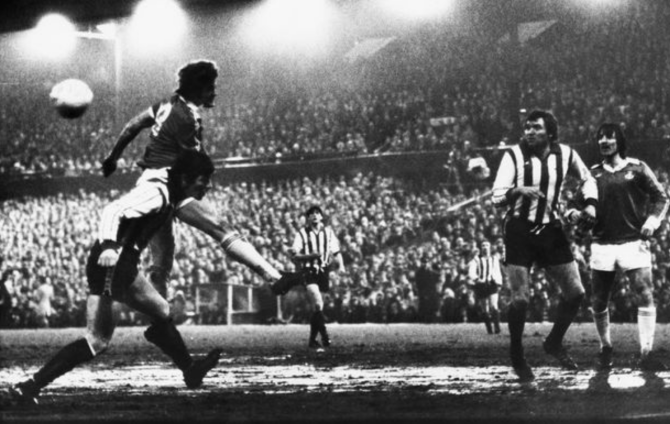
The challenge that lead to the penalty award!.
 Despite vigorous protests Graham Whittle stepped up to fire the Third Division side ahead in front of the packed Leazes Stand.
Despite vigorous protests Graham Whittle stepped up to fire the Third Division side ahead in front of the packed Leazes Stand.
Blyth settled and created chances, Carney charged down a Roberts clearance but Dai Davies was alert and gathered the ball.
Davies was alert and gathered the ball.
Dave Varty twisted away from Dwyer but as he bore down on goal Roberts just managed to nip the ball away.
Wrexham replied with efforts from Shinton and Whittle that Clarke dealt with comfortably. The ref then further angered the crowd by ignoring his linesman’s signal for a goal kick and awarded a corner to Wrexham. The playing surface was getting worse as the rain poured down, Alan Shoulder did well to keep his footing as he skipped passed two defenders only to see his shot rise over the bar. Seconds later defender Dwyer cynically brought Shoulder down as he went passed him but staggeringly the ref waved play on.
Wrexham’s quick breaks were keeping the Blyth defenders on their toes, one led to the visitors going two up. In the 26th minute Bobby Shinton collected the ball deep in their half and ran almost the length of the field. He crossed for Dixie McNeil to crash home a thunderous half volley that give Dave Clarke no chance.
Despite the setback the crowd responded to drive the Spartans on, the Gallowgate end erupted thinking Alan Shoulder had pulled one back. His viciously dipping effort looked to have been pushed in by Dai Davies but it had in fact been pushed around the post for a corner.
 Blyth were pushing hard to get back into the game, Rob Carney won a corner when his drive was blocked by Evans. From the corner a scramble ensued when the ball wasn’t cleared. Terry Johnson & Tommy Dixon just failed to get a touch on the ball before keeper Dai Davies smothered the ball in the mud bath of a goalmouth.
Blyth were pushing hard to get back into the game, Rob Carney won a corner when his drive was blocked by Evans. From the corner a scramble ensued when the ball wasn’t cleared. Terry Johnson & Tommy Dixon just failed to get a touch on the ball before keeper Dai Davies smothered the ball in the mud bath of a goalmouth.
What wasn’t know until later was that Davies picked up an injury making that save. Manager Aaron Griffiths took the decision at half time to keep quiet about it, deciding to not tell his players to avoid them over protecting Davies. He didn’t want to make it obvious to the Blyth players that his keeper was carrying an injury. After the game Davies was taken straight to the RVI with a suspected broken hand!.
Just before the break Blyth had a big appeal for a penalty waved away, defender John Roberts appeared to push a shot away with his hand. The Blyth players were furious with Alf Grey for denying them what they saw as a clear penalty. Roberts even admitted after the game he’d handled the ball.
 Blyth started the second half as they had left off and pinned the visitors back. In the very first minute Varty’s corner was agonisingly missed by both Steve Carney & Terry Johnson. Even the defenders were getting involved, Ronnie Scott superbly intercepted a pass and surged forward before unleashing a 40 yard drive that Davies did well to hold. Aside from conceding ground to Blyth the Welshmen were conceding countless corners, Varty swung in a superb ball that Terry Johnson was unlucky not to connect with.
Blyth started the second half as they had left off and pinned the visitors back. In the very first minute Varty’s corner was agonisingly missed by both Steve Carney & Terry Johnson. Even the defenders were getting involved, Ronnie Scott superbly intercepted a pass and surged forward before unleashing a 40 yard drive that Davies did well to hold. Aside from conceding ground to Blyth the Welshmen were conceding countless corners, Varty swung in a superb ball that Terry Johnson was unlucky not to connect with.
Wrexham’s best chance of the half came from a Blyth defender, captain John Waterson tried to clear a Shinton cross but only succeeded in heading against his own crossbar, Tommy Dixon reacted the quickest to clear the rebound.
Rob Carney then collected a weak clearance by Roberts and went close with a left foot drive that just cleared the bar. Dave Clarke produced his only save of the second half when he got down well to a low drive from Whittle.

 With only 7 minutes remaining St James Park erupted, another poor clearance was once again collected by Rob Carney who turned the ball into Keith Houghton.
With only 7 minutes remaining St James Park erupted, another poor clearance was once again collected by Rob Carney who turned the ball into Keith Houghton.
He headed into the path of Terry Johnson who then turned on the ball before hammering home high & wide of the despairing Davies.
The remaining minutes were absolute bedlam as the crowd bayed for another goal but unfortunately it wasn’t to be and despite their valiant efforts the dream was over.
After the players exchanged pleasantries the Wrexham players slipped off the pitch celebrating their victory almost unnoticed. The Blyth players took the adulation of the crowd who refused to leave without giving their heroes the send off they deserved.
The players and officials took a lap of honour around a raucous St James’s and the emotion of it got too much for some. Coach Jackie Marks broke down in tears and had to be consoled by physio Pat Smith.
Blyth Spartans may have lost the game but in the eyes of the packed St James’ Park and the North East they were the real winners.

 After they players finally left the pitch there was a celebratory mood in the changing room. Champagne flowed as they all toasted their superb achievement.
After they players finally left the pitch there was a celebratory mood in the changing room. Champagne flowed as they all toasted their superb achievement.
Brian Slane couldn’t hide his feelings about the part the referee had played in the two games:
“After what happened in the first match the referee was determined to show he was not pro-Blyth but he went completely the other way. It was never a penalty. That sort of challenge happens dozens of times in a game.
We should have had a penalty when John Roberts tipped the ball away in the first half. But there is nothing we can do now, we have just got to accept it. I’m sick at the result for the lads but I’m proud for every player because of the way they played. But that’s football and you have got to accept it. We have done a wonderful public relations job for football and we have shown many professional sides how to accept defeat with dignity”.
 Ronnie Scott was equally adamant about the controversial decision:
Ronnie Scott was equally adamant about the controversial decision:
“I just went for the ball, my hand was up but McNeil made a meal of it. It wasn’t a penalty it was just a 50-50 ball we both missed it and as I went to chase it he was appealing to the ref!”.
Dave Clarke had the best view of the incident, happening right in front of him:
“It was a brave decision by the ref but a wrong one. It was a driven cross from my left and Scotty and Dixie went for it and both missed it, and as they tried to chase the ball the ref was conned by a good pro who made a meal of the challenge”.
 Terry Johnson spoke about his goal but couldn’t hide his frustration at the ref:
Terry Johnson spoke about his goal but couldn’t hide his frustration at the ref:
“A header put the ball through, I controlled it and just turned and put it in. There are better referee’s in the Northern League. He robbed us tonight and cost us the match at Wrexham.
If they had not got an early goal it would have been a different match”.
Many felt the highly qualified referee had favoured the league side and made wrong decisions at key points throughout the two ties. Within the club there was a belief that their exploits had become an embarrassment to the FA and they had wanted the part timers out the cup no matter what. Chairman Jim Turney didn’t hold back:
“The referee started off tonight as he left of at Wrexham. Again they were favoured by him.
I expected this because in my experience as a player, manager and chairman of Blyth the referee has always favoured the football league side. We put up a great performance, a fantastic team effort and at the end of the day we were the real winners”.
Captain John Waterson, who’s challenge 10 days earlier at the Racecourse Ground should have put his side into the Quarter Finals, summed how his teammates felt:
“It was absolutely marvellous the way the lads gave 110 percent. We can’t speak highly enough of the supported in the North East. It was tremendous to walk out in front of them. The way they helped us was amazing. We felt ten feet tall when we heard them and it never stopped. I can’t pit it into words how we all feel about them. We have memories for a lifetime now-something you can’t possibly forget.
Having played for both Newcastle and Sunderland Ron Guthrie knew what they had done for the region:
“We have brought a lot of pride back to the North East and we did it playing good football”.
Wrexham boss Afron Griffiths commended the Spartans:
“They did exceptionally well. They got better as the game went on. I don’t mind admitting I was worried. You can’t take anything away from them, they battled at our place but they were even better tonight. Two goals down and they stuck to the task we were hanging on in the end. What a performance.”
The local and national media were full of praise for the club in their efforts on the pitch and how the club had handled itself off the field, FA secretary Ted Croker was also full of praise famously stating:
“Blyth Spartans must be the most famous non-league football team in the world.”
Many awards were bestowed on the club such as Non League Team of the Year, the FA Team of the Year and Dave Clarke was named the Non League Player of the Year.
The club had become a star attraction and was inundated with offers from clubs wanting to play the ‘famous Blyth Spartans’, including offers from abroad!.
The town’s twin-town of Solingen in Germany invited them over for a friendly, one offer that was accepted came from Irish club Finn Harps who offered an all expenses paid trip over for a friendly.
Two local businessmen were intent on making the game everyone wanted happen.
Bothers Roy & Ian Caller, owners of the Caller’s store chain, were Joint Vice Presidents of the club and contacted Arsenal in an attempt to arrange a friendly.
They offered an all expenses package if they travelled up to Croft Park for a game.
However, citing fixture commitments they turned down the offer, Roy Caller contacted them again on the clubs behalf proposing a pre season friendly but they replied stating they had already arranged a pre season tour of Germany!.
The Arsenal game never happened but Blyth did face Wrexham again that season and got some revenge when they beat them in Debenhams Cup.
 Despite missing out on the league title three trophies were won, the Northern League Cup, Northumberland Senior Cup and the Debenhams Cup. There was an open top bus parade around the town as a thank you to the fans and town for their support throughout the historic season.
Despite missing out on the league title three trophies were won, the Northern League Cup, Northumberland Senior Cup and the Debenhams Cup. There was an open top bus parade around the town as a thank you to the fans and town for their support throughout the historic season.

The club received a civic reception in honour of their achievements and there was a social evening held in the clubhouse at Croft Park.
Of the many souvenirs that came out of the cup run, one of the most popular was the ‘Blyth Spirit’ record produced in conjunction with Radio Newcastle.
It featured commentary from the cup games including BBC Sport broadcaster Peter Jones’s now iconic words from the St James’ Park replay:
“I have seen many many memorable moments on football grounds not many would beat this….”
Unsurprisingly several players found themselves targets of league clubs, within a year Alan Shoulder signed Newcastle United for £20,000 and not long after Steve Carney also joined the United ranks.
Keith Houghton was pursued by Second Division Chelsea and Carlisle United but spurned their advances due to his job as a Policeman, but finally quit the force in October 1980 to join the Cumbrians.
———————-
- What of the man many blamed for killing the dream, referee Alf Grey.

To this day his name still rankles Spartans fans, some believe he’d long since passed away but he is still alive albeit 83 now.
The Great Yarmouth ref had initially harboured ambitions of becoming a cricket umpire:
“Cricket was my first love and I qualified as a cricket umpire whilst serving in the Royal Air Force in Germany in 1953. It was only when I was told that I had no chance to progress very far in that profession and most certainly not to County Championship level that I turned my intentions to football refereeing…and immediately became one of football’s most unloved ones!
Starting his refereeing career in 1960, his first major appointment was the 1971 Amateur Cup Final at Wembley. He was appointed to the Football League in 72: “After eight demanding years’ apprenticeship, I was appointed to the linesmen’s list of the Football League and then to the referees’ list. I soon realised that I could not rest on my laurels for the road down was much quicker than the road to the top, and there were far more critics available to help me on the way down if I should fail.”
He was Clive Thomas’s lead linesman for the 76 Southampton v Manchester United FA Cup Final. In January 77 he was elected to the FIFA International Referee’s pool and appointed to 3 European club ties. He also ruled over 3 Internationals; Saudi Arabia’s 0-1 World Cup Asia/Oceania Qualifier defeat to Kuwait in November 81, Ireland’s 3-1 friendly win over Czechoslovakia 3-1 in April 82 then in June 1983 his last ever game before retiring was Brazil’s 2-1 win in Switzerland.
His other Wembley ‘appearances’ were the 78 FA Trophy Final and the 81 Charity Shield, having announced he was retiring at the end of the 82/83 season he was appointed to the FA Cup Final and it’s replay between Manchester United and Brighton.
Once his ‘playing days’ finished he became an assessor on the FA and Premier Leagues Referee’s panels and also a UEFA delegate/referees observer controlling matches throughout Europe.
During his career as a referee he always found time to referee local school finals and charity matches.
He bracketed referee’s in three groups:
‘sergeant-major’, ‘showman’ and ‘keep-calm’
a category he placed himself in:
“I tried not to irritate players by over-anxiety on my part. There was, however, the danger that at times my tolerance would be taken as a sign of weakness, but those who knew me knew I could get tough if the occasion demanded.”
3 years after the Blyth v Wrexham games he was in the headlines again with Manchester City fans up in arms about him. He controversially ruled out a City goal that features in the 2017 book ’50 Years of Manchester City: The Best and Worst of Everything’ written by Steve Mingles chronicling his life watching City.
 City hosted Liverpool in the ’81 League Cup Semi Final 1st leg, 6 minutes in Kevin Reeves out jumped Alan Kennedy to head past the advancing Ray Clemence. Grey inexplicably ruled the goal out for a foul on Clemence. He then further incensed the City fans awarding a contentious late free kick that sealed Liverpool’s 0-1 win, the irate City fans dubbed it the ‘f***ing Alf Grey game’. Grey was involved in football for 44 years and travelled to 50 countries as an official. Even before retiring he rarely spoke publicly, but in 2011 he granted a journalist & sports writer from his home town an extremely rare interview in which he spoke about his career.
City hosted Liverpool in the ’81 League Cup Semi Final 1st leg, 6 minutes in Kevin Reeves out jumped Alan Kennedy to head past the advancing Ray Clemence. Grey inexplicably ruled the goal out for a foul on Clemence. He then further incensed the City fans awarding a contentious late free kick that sealed Liverpool’s 0-1 win, the irate City fans dubbed it the ‘f***ing Alf Grey game’. Grey was involved in football for 44 years and travelled to 50 countries as an official. Even before retiring he rarely spoke publicly, but in 2011 he granted a journalist & sports writer from his home town an extremely rare interview in which he spoke about his career.
One of his clearest recollections was by his own admittance his most controversial fixture and the one he is still remembered for; Wrexham v Blyth.
Despite initially admitting his mistake with the passing of time he was somewhat blasé about it:
“If Blyth had won they would have gone into the sixth round and a tie against Arsenal. I am still remembered for awarding Wrexham a corner kick, that they say was not a corner, that led to an equalising goal in the dying minutes for Wrexham.”
“In those early days I was sufficiently ambitious to tolerate the abuse from fans and as I progressed through the Football League – sensational journalism, slow-motion television replays, anonymous abusive telephone calls and even bomb threats!”.
 In 2012 he received an England cap to mark his contribution to English football during his time as a FIFA Referee, it was presented to him by FA Referees Committee chairman David Elleray in a ceremony held in London.
In 2012 he received an England cap to mark his contribution to English football during his time as a FIFA Referee, it was presented to him by FA Referees Committee chairman David Elleray in a ceremony held in London.
———————-
In 2003 the players & officials gathered to mark the 25th anniversary of their historic cup run and it was the feature of an TV documentary:
The club had a proud FA Cup tradition before the events of 1977/78 but what was achieved that season capped off a superb era in the clubs history.
Having rebuilt itself after becoming ‘amateur’ in 1964, the club eventually got to grips with life as a part-timers and went on to great success in the 70’s.
Despite the passing of time the achievements and memories of 77/78 have deservedly lived on.
 Those ‘part time’ footballers rightly became legends of North East football and the name of Blyth Spartans became famous throughout football because of their historic achievements.
Those ‘part time’ footballers rightly became legends of North East football and the name of Blyth Spartans became famous throughout football because of their historic achievements.
To this day the FA Cup still holds a special place with the club and it’s supporters. The famous 77/78 ‘Blyth Spirit’ was shown to be still alive & kicking in the two recent cup runs to the 3rd Round.
 The club have marked the 40th Anniversary throughout 2017/18 with a series of events and the current home kit is a replica of the one worn that famous season.
The club have marked the 40th Anniversary throughout 2017/18 with a series of events and the current home kit is a replica of the one worn that famous season.
The players have been guests of honours at home games building up to the anniversary when a special social evening is planned to mark the historic event.
4 club legends from that epic season have sadly since passed away –
RIP Ronnie Scott, Steve Carney, Jackie Marks, Tommy Dixon.
- Credits, Acknowledgements & Thank you’s:
 Ken Sproat’s superb book ‘The History of Blyth Spartans’ was a crucial source of information.
Ken Sproat’s superb book ‘The History of Blyth Spartans’ was a crucial source of information.
 Andrew Griffins excellent 2006 books about the cup run
Andrew Griffins excellent 2006 books about the cup run
‘Two wins from Wembley‘ was another crucial source of information and images.
It is well worth a read with some great insight by those involved such as players, officials and supporters.
The following excellent websites provided important info and images:
http://www.non-leagueclubdirectory.co.uk/index.php/clubs/club-year/blyth-spartans-1977-1978
http://www.wrexhamprogrammes.com
http://www.penmon.org/page70.htm
Blog Ping
Hostgator promo codes


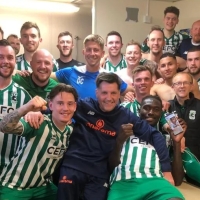
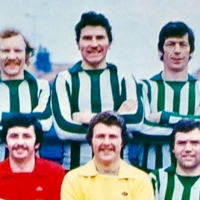
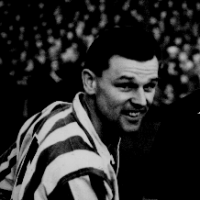
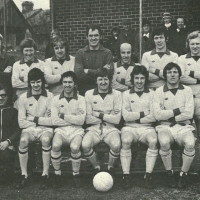
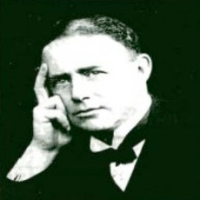
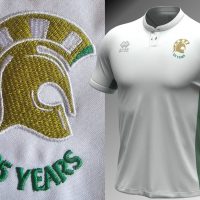

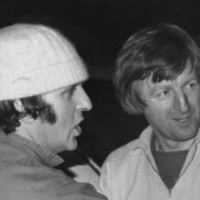

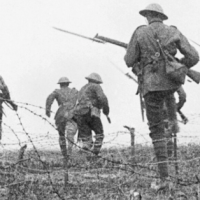
Pingback: The 1977/78 FA Cup run – the complete record. | Blyth Spartans AFC – making history since 1899
Pingback: Green & White Cult Heroes – Brian Slane | Blyth Spartans AFC – making history since 1899
Pingback: The Alan Shoulder story. | Blyth Spartans AFC – making history since 1899